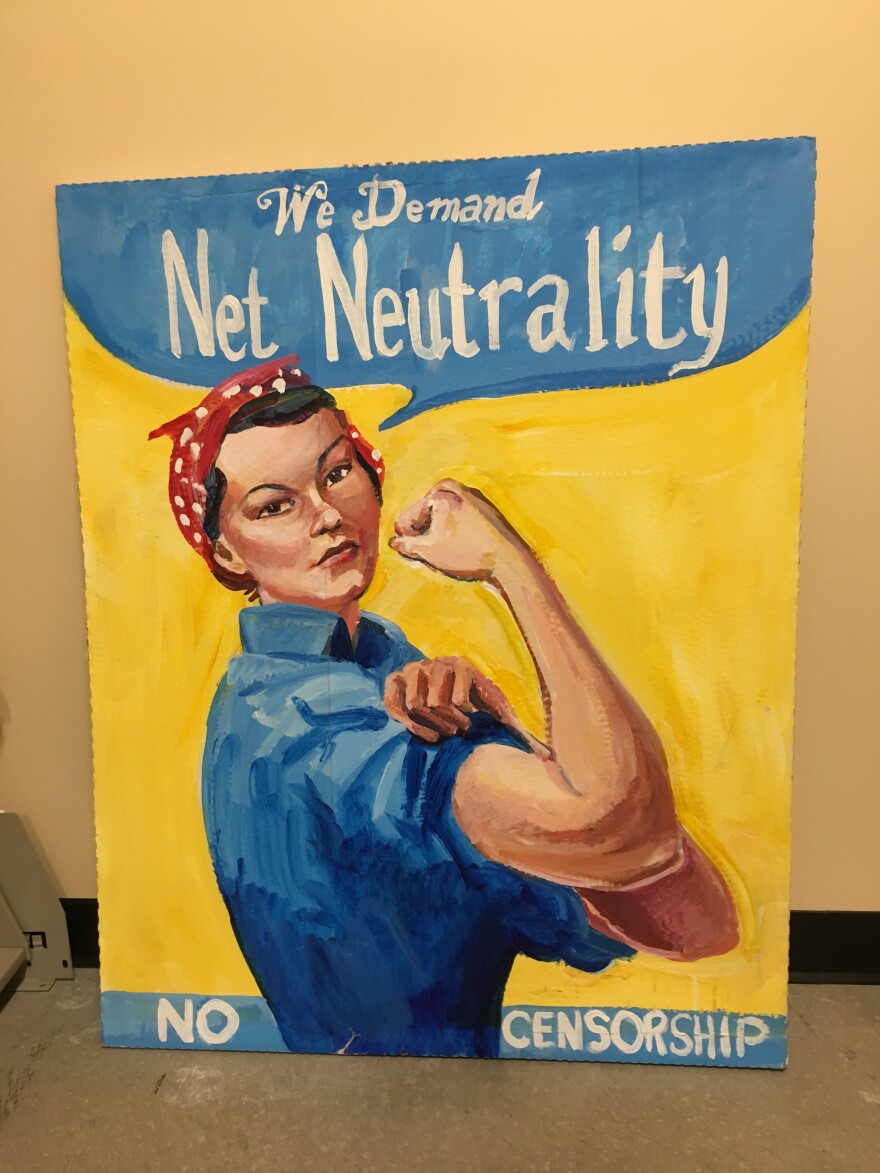Protest signs and pink, cat-eared “pussyhats” are flooding the Denver Public Library after archivists put out a request for the Women’s March memorabilia.
“We put just a simple Facebook post out -- and it kind of exploded on us,” said Jamie Seemiller, acquisitions librarian for the library’s Western History and Genealogy Department. “It reached about 23,000 people and was shared over 200 times within the first couple days.”
So far, Seemiller has received more than 50 signs, as well as the hats (which were the event’s unofficial uniform) and a Suffragette-styled sash.
The items will be archived to aid future researchers looking to document the Jan. 21 march, during which more than 100,000 people took to the city’s streets.
“Because it was such a large-scale event, we feel that there is going to be research potential in the future for people studying what’s going on right now in this time period with this new administration and the climate of the country,” Seemiller said.
The march brought out people protesting for a variety of reasons -- health care, women’s rights, immigrant rights and African-American rights. One donated poster -- a painting that paid homage to the classic image of Rosie the Riveter -- focused on net neutrality.

“There were 100,000 stories of why people were there that day,” she said.
While they can’t accept every item offered, Seemiller said she wants people to keep contacting her about potential donations.
“We want people to contribute,” she said. “That’s the most important thing. We want citizens out there to feel like they are citizen archivists and they’re contributing to documenting this movement.”
Once the items are archived, there is the potential for both an online and physical exhibition in the future.
“It was just breathtaking to see the photos and the news footage that day… It was just unbelievable,” she said. “I have never seen a march like this in my lifetime, and I’m a Denver native. So I think just the sheer scale of it and how it impacted so many people is very important to document.”





